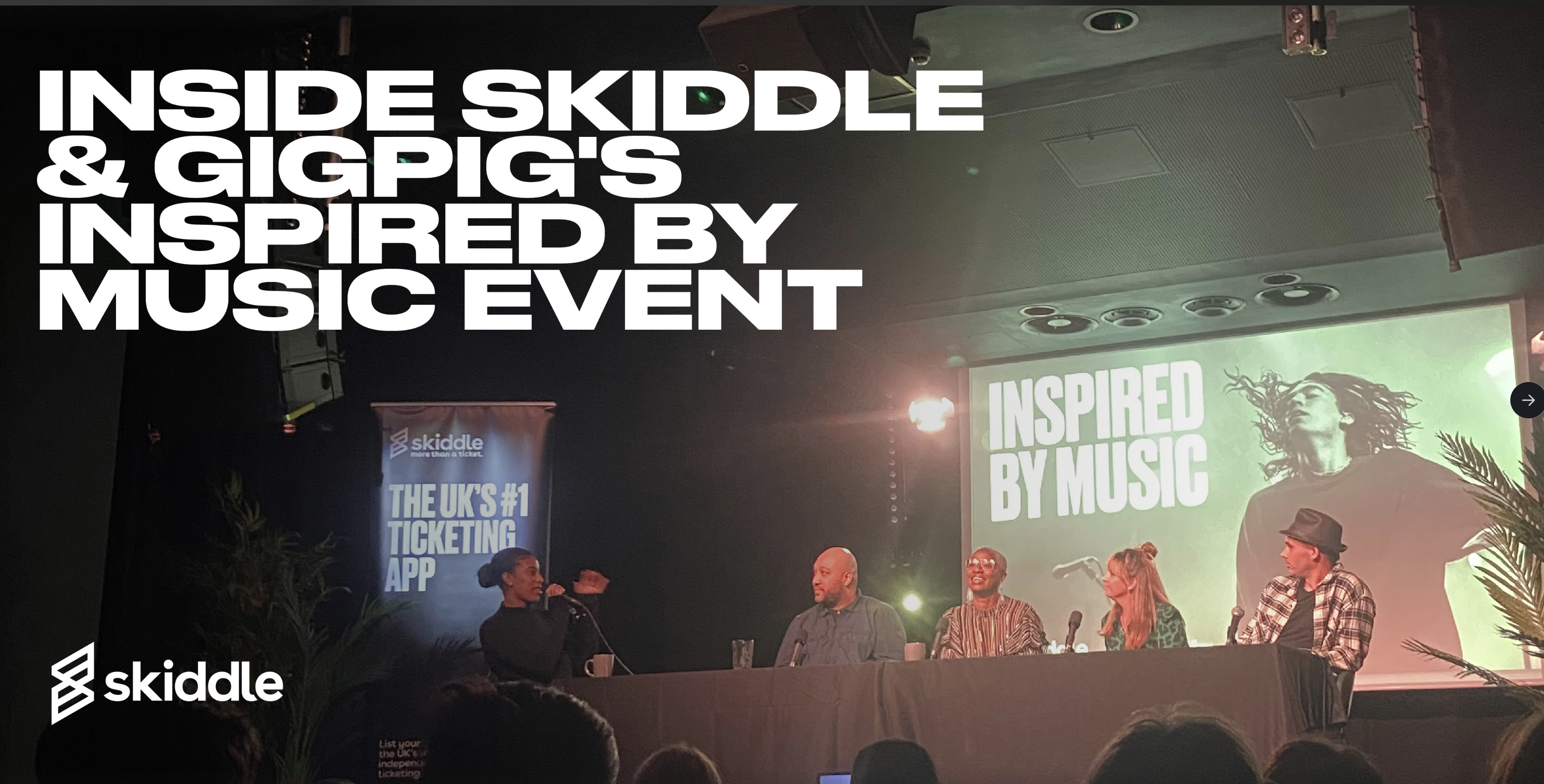- Event Promotion Tips
The importance of championing women in the music and events industry
-
By Ryan Moss
- 07 Mar 2023
- 8 min read
Society presents women with challenges. Sexism, lower pay and barriers to entry are just a few. Often, people see the music and event industries as utopian spaces. A place where people can find solace from the ills of the world.
But it doesn’t always work out like that. The challenges presented to women show up across the industries. Everyone – including us – has a responsibility to make it better. Not just for women now; but for women in the future who will become the next generation of promoters and event industry professionals.
The studies show it, too. In 2022, The Jaguar Foundation published ‘Progressing Gender Representation In UK Dance Music’.

They found that while the split between male and female employees was quite close, the number of women in senior roles was at 37%, with men at 63%. So, there’s an imbalance. It affects both performers and the staff who work at companies that make up the industry.
Championing women can take on many forms. It might be booking more female and non-binary performers or DJs, hiring them in roles behind the scenes and creating the conditions for them to enjoy a night out. By doing these things, you’re helping to re-address the imbalance.
The theme around this year’s International Women’s Day is #EmbraceEquity. This means going further than providing a one size fits all approach. It’s about avoiding a monolithic treatment of women and providing them with the exact tools they need to achieve opportunities.
In this article, we’ve looked at the importance of championing women in the music and events industry. There are general points and points that look at achieving equity. Read on to find out more.
You create an infrastructure for women
So, we’ve spoken about booking more female performers or DJs and hiring them in roles behind the scenes. But how does this help? Well, it creates an infrastructure in the music and event industries.
When there’s infrastructure, things work better. Booking women regularly means that they can get paid for their craft. They can improve, make mistakes and meet new people. All of which are crucial to artist development.
Reading a crowd is paramount for any performer. Take DJs and comedians. Now, you might think: these are two completely different disciplines. That’s right, but gauging crowd reactions helps both to improve.
How can you create equity here? If you’re running an event with performers, it might mean working with a performer at the beginning of their career.
If they need a place to fine-tune their set and get live experience, use your platform to give them that. Use your connections to find a space where they can practice. Stick with them, and once they’re more experienced, move them up the bill. It’ll show other women interested in performing that you’re willing to help someone from the ground up.
This type of development creates more female performers in the upper echelons of the industry. Think of it as a space to incubate talent by sharing connections. Once one act has moved up the bill, you can bring another on board and repeat the process.
A varied workforce
Championing women doesn’t stop on the stage or behind the decks. It’s crucial to support women behind the scenes, too.
What does that look like in practice? Hiring, promoting and creating opportunities. The workplace becomes more diverse, and the women you hire will bring fresh perspectives and new ideas with them. When you’re in the hiring process, make it clear that women and non-binary people are encouraged to apply.
Consider promoting from within. By doing this, you’re showing your present and future staff that you are willing to develop their skills. Look at how the women in your team are performing. Can they make the step up? If there is an opportunity to promote, do that.

If not, what can you do to provide support? It might mean making training opportunities more accessible. Everyone has different needs, so assess where it is your employees can improve. Review their performances and speak to them directly. Having this insight will make it easier to help them.
This ties into what we mentioned in the introduction. If you’re providing an environment where your female staff can reach senior positions, you’re playing a part in addressing an imbalance and providing equity.
Enables representation
Representation matters. The more women there are in the industry, the more other women can see someone like themselves doing creative things. It can be a source of inspiration or just a source of joy. Sometimes it’s nice to enjoy the creativity of people like yourself.
You’ll likely see more women through the door if you regularly book women on your line-ups. It makes sense. Female performers will have fans that want to see them, and other women might be more inclined to attend, knowing there are women on the bill that night.
It’s the same behind the scenes, too. If a companies hire an equal amount of female employees and give them the tools to succeed at each level, there’s a blueprint. Budding professionals can see what other women have done, study and adapt the skills passed on.

Equity plays a part here, too. Budding professionals can take notes from senior-level staff, but they’ll be helped even further by concrete examples of how people have moved from entry to mid-level and beyond.
So, you could run content with your employees who have done this. A step further would be holding webinars and talks with them. Aim the events at other women trying to get into the industry and share the knowledge.
After all, it’s hard to focus on a goal if you can’t see anyone who has come before you. People need tangible examples of others like them doing something similar and doing it well.
Got a question you need an answer to? Give us a call on 03333010301 or ask us a question over on the Skiddle Promoter Twitter account by clicking or tapping on the button below. Alternatively, you can also find a list of our most frequently asked questions over at https://help.promotioncentre.co.uk/
















